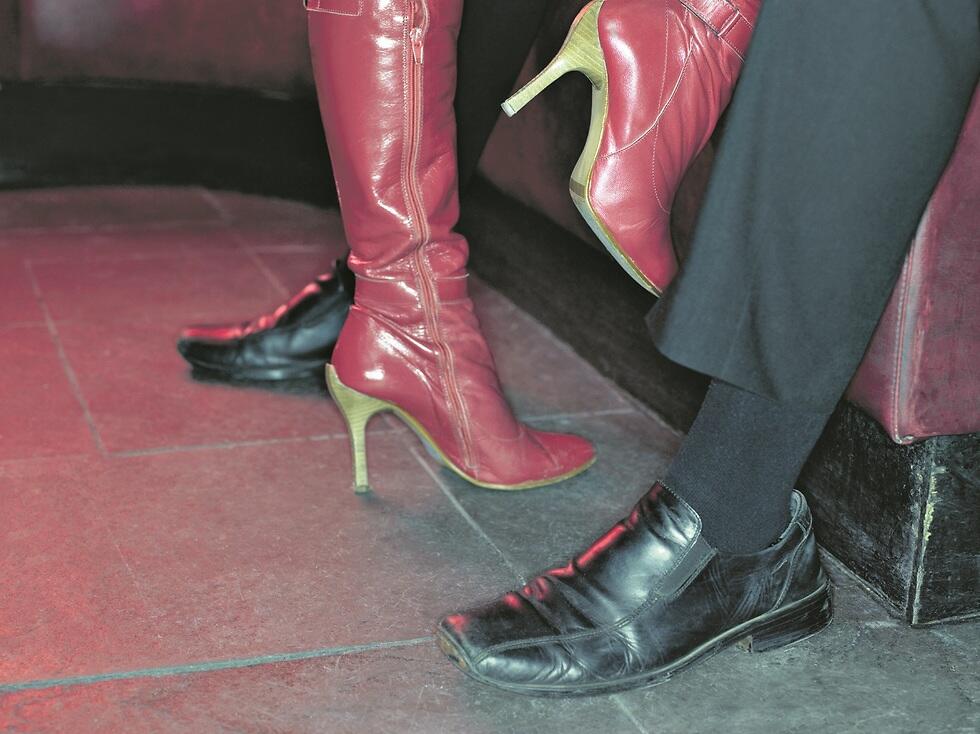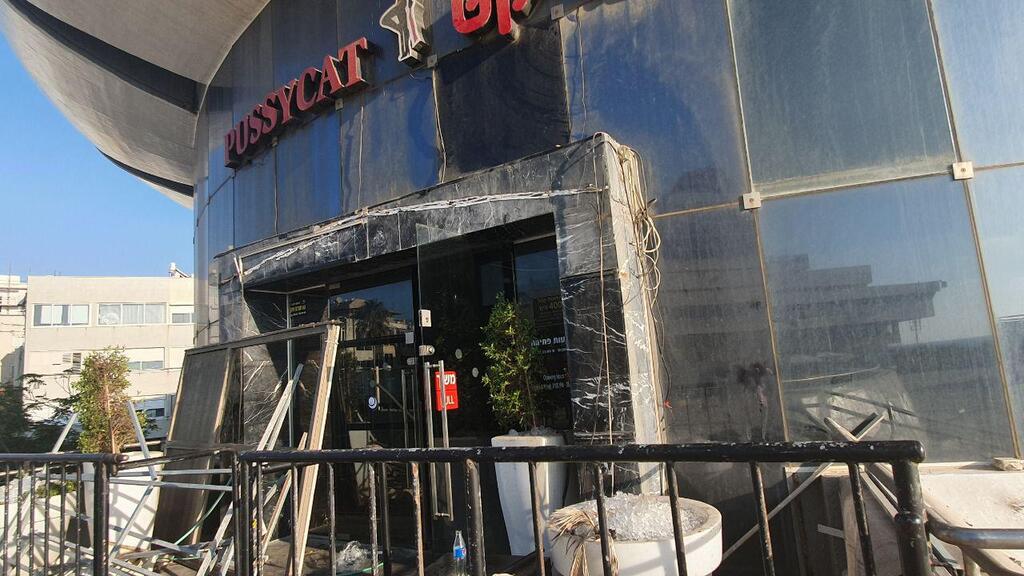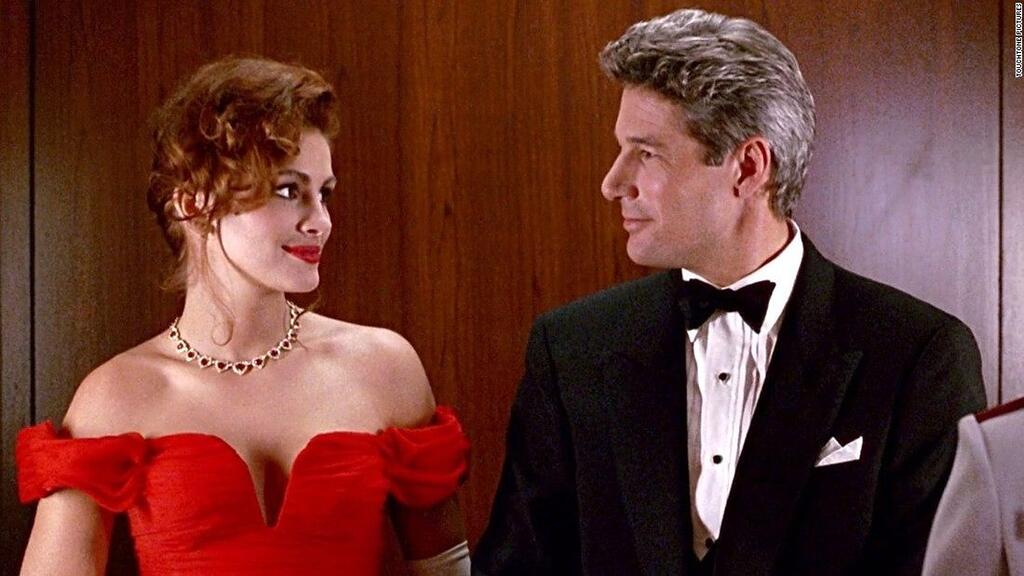It's been three years since Israeli authorities declared war on strip clubs. The State Attorney's Office declared at the time that lap dances are tantamount to prostitution. The Tel Aviv Municipality said it will not issue any licenses to new strip clubs and local police raided all existing strip clubs and shut them down. Then came COVID and everyone went home anyway. Now they're back, exactly as it was before.
Strip shows, in and of themselves, are not technically prohibited in Israel. Prostitution, as a profession, is not technically illegal or criminal. What's prohibited are all its "peripherals" — pimping, soliciting minors, renting spaces for prostitution-related services, human trafficking and so on. From an administrative standpoint, licenses are no longer issued for that purpose.
Yelena Dewayne, a former stripper and current anti-prostitution activist, has recently discovered a shiny new strip club on the street where she lives.
"Authorities have announced the banning of the practice, and yet these clubs continue to operate out in the open, with the same owners of the clubs that were shut down," she says.
How is that?
"I don't buy that the authorities were surprised to see all these locations operating without a license. Millions were invested in the club on my street, and nobody knew it was being built? The state is going along with it. I've been getting calls from those who used to work in this industry and they told me about the trauma that relived upon hearing that these clubs have reopened," she adds.
Strip clubs have a lengthy history in the Holy Land, and used to be an integral part of local culture. In 1969, Ynet's sister publication Yedioth Ahronoth ran a story about a strip club that was throwing tea parties in the afternoons, as was the practice in Europe. Flash forward 30 years, and another article told the story of 14-year-olds who attended strip shows. The women working there were never mentioned.
In 2009, Israel rumbled over a story of an IDF Navy general who was spotted in a strip club, and Israeli society was divided between two camps: Those who thought it was his private business and those who considered it a disgrace and called on him to resign. Again, the women working there were never mentioned.
Later that year, a sexual assault incident in Tel Aviv had Erez Efrati, a Shin Bet officer, plastered all over national newspaper front pages after he assaulted a woman at his stag party at Tel Aviv's Pussycat strip club. Many scratched their heads as to how one of "Israel's finest" could be caught in such an act.
Then, there was Prime Minister Benjamin Netanyahu's son, Yair, who was spotted in a strip club with an energy magnate's son and another friend. This time, with the #Me_Too movement already in full swing, the headlines were extremely critical.
In 2012, the Pussycat moved to a new central location in the heart of Tel Aviv, and women's rights groups were up in arms, pressuring both police and city hall to do something about it, which resulted in a raid that revealed that the club was actually a brothel in the full sense of the word, with private rooms where patrons were allowed to have sex with the strippers. Drugs and condoms were also found at the place, leaving no doubt about its true purpose. In July 2019, after an exhausting legal battle, it was shut down.
Shani Nardimon, a criminologist who has studied strip clubs in Israel extensively and has even published a book about it, is unsurprised by the resurgence of strip clubs. "I believe the reopening of strip clubs is happening with the same group of people as before," she says.
Where are the authorities on all this?
"Crawling along. Prostitution is an industry that doesn't see much enforcement, let alone strip clubs," she says.
"When I began working with teen prostitutes, my first patient was a stripper, the kind you see at a bachelor party. She was 16 at the time and she told me what was happening at these strip clubs, so I myself visited those places dozens of times, surveying and interviewing. I found a subculture that fascinated me."
How so?
"Working club girls don't consider themselves as part of the sex industry. There's a dissonance between what's happening in the club and what's going on outside. Literature on the issue says there is a background of sexual abuse, early departure from the family home and a passion for fame. Many consider themselves dancers, working their way to becoming famous."
What about the need to make a living?
"It's there, but it's not the primary motive. They look into it, not knowing what it requires. Some pay the clubs to be there and gain experience. It's stipulated in their contracts. While lap dances don't really make you money, it does lead to the private rooms, where intense intimacy is expected. Some patrons go too far but the girls don't ask them to stop because they don't want to appear problematic."
Is it possible to draw a line in a place like this?
"Some girls are just there to dance, and they put on an amazing show. Pole dancing is an art form. That said, many see their friends walk away from the private rooms with a lot of cash and it becomes enticing. They start by telling themselves they'll only sleep with the rich guy, but they end up in the private rooms all the time because that's where the real money is, but even then, they still don't view themselves as part of the sex industry. The way they rationalize it is what protects them," Nardimon says.
"When the clubs began reopening, private rooms did not return immediately, but they're bound to. Some girls say that the best way to avoid that scrutiny is to take it outside. The owners adapt and become more proficient at disguising those activities as innocuous. I find it hard to believe men go there just to see women dance. In Israel, at least."
How do you get out of it?
"Depends how you got in it. One of the most efficient ways to get out is with a significant other. Many women dream of their Richard Gere in their own private Pretty Woman world. Some get Tony Soprano instead," she says.
"Other women become managers, working other girls into the industry. Some leave because of a traumatic event like rape. Since a young body is crucial for the job, many girls are forced to retire with time, as their bodies grow older."
Since the large-scale police raids on strip clubs, the State's Attorney's Office has decided to close pending cases against the three major clubs.
Adv. Illit Meidan, the State's Attorney's Office reference person on human trafficking and prostitution, said "clubs have changed their ways, by all accounts. Lap dances are no longer a thing. The point of all of it was to protect women's autonomy over their bodies and that has been largely achieved."
So you're saying that all club owners have immediately complied with the state attorney's directive, which isn't even enforced by law enforcement?
"I cannot say that for an absolute fact, but those are the reports we've been receiving. If there is a location that still performs lap dances, we will handle it appropriately," she says.
Efrat Makin-Knafo, which oversees women's issues in the Tel Aviv Municipality, says: "Strip clubs do not conform with our standards and the city's well-being. We're aware that there are clubs still open in Tel Aviv and we're constantly working on this issue by closing them down and helping these women."
How?
"Eight women who once worked in the industry have been accepted as municipality workers. Naturally, some strippers protested against us and we understand that, but we believe stripping is disrespectful and stands in contrast to the values we wish to instill in girls and young women and thus we have a moral obligation to act. Just because it's not against the law, doesn't mean it's good. Either way, we won't issue licenses to strip clubs ever again," she says.
Knesset's Committee on the Status of Women and Gender Equality held a hearing last week on strip clubs that became quite heated, with strippers and feminists locked in a shouting battle.
Yelena Dewayne, who attended the hearing, says "I once saw things from the strippers' point of view, but I believe what happens in strip clubs is tantamount to human trafficking and prostitution, and I don't believe there's any separating it."
Israel Police have issued the following statement: "We routinely conduct enforcement activities against those who purchase prostitution services. If we have information regarding a specific club where this is happening, we will act accordingly with regard to illegal activities or lap dances."
The Tel Aviv Municipality said it sees great importance in the advancement of women and is working in accordance with standard procedures to tackle the issue of strip clubs.
Scanning through hundreds of hours of security footage from the city's three major clubs, two of which have been closed and now likely operate at a different location under a different name, and have deduced that the directive to suspend all lap dancing activities has been largely followed, a supposition further reinforced by testimonies from workers, customers and managers.




